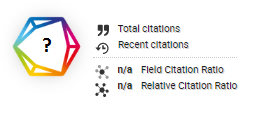DAMPAK MENULIS EKSPRESIF TERHADAP TINGKAT STRES, KECEMASAN, DEPRESI PADA MAHASISWA KEPERAWATAN
DOI:
https://doi.org/10.46984/sebatik.v26i1.1663Keywords:
Stres, Kecemasan, Depresi, Menulis EkspresifAbstract
Ilmu keperawatan terus mengalami pembaharuan sehingga mahasiswa harus menyesuaikan diri terhadap perubahan dinamis yang terjadi. Banyaknya materi pelajaran yang harus dikuasai dalam waktu singkat disiasati dengan mengerjakan tugas secara berkelompok, tugas makalah, hafalan dan praktikum yang seluruhnya harus diselesaikan tepat waktu sesuai durasi masa kuliah untuk jenjang diploma III. Ekspektasi untuk menjadi sukses secara akademik dan tuntutan lulus uji kompetensi dapat menyebabkan stres, kecemasan dan depresi pada mahasiswa. Metode menulis ekspresif dapat mengurangi tingkat depresi, kecemasan dan stres pada mahasiswa keperawatan sehingga proses belajar selama masa kuliah menjadi efektif dan menyenangkan. Desain penelitian ini adalah pra-eksperimen dengan menggunakan satu kelompok subyek penelitian, melibatkan satu kelompok responden. Sebelum diberi perlakuan, dilakukan pengukuran tingkat depresi, kecemasan dan stres pada responden menggunakan alat ukur Depression Anxiety Stres Scale (DASS) questionarre 42 item, setelah itu responden melakukan menulis ekspresif selama empat hari, lalu satu bulan kemudian dilakukan pengukuran tingkat depresi, kecemasan dan stres menggunakan DASS 42 kuesioner untuk melihat perubahan tingkat stres akademik pada responden. Uji statistik menggunakan program SPSS paired-t test. Menulis ekspresif secara signifikan dapat menurunkan tingkat stres, kecemasan dan depresi yang dialami responden dengan nilai signifikan .000. Penggunaan metode menulis ekspresif dapat meningkatkan emosi positif dalam diri responden.
References
Baikie, K. A., & Wilhelm, K. (2018). Emotional and physical health benefits of expressive writing. Cambridge University Press, 338–346.
Benjamin J. Sadock, Virginia A. Sadock, H. I. K. (2011). Kaplan and Sadock’s Concise Textbook of Child and Adolescent Psychiatry. Philadelphia: Lippincott Williams and Wilkins.
Budiyono, N. R., Sudiro, S., & Wibowo, A. P. (2020). the Effectiveness of Expressive Writing and Social Media As Emotional Release. International Journal of Business, Humanities, Education and Social Sciences (IJBHES), 2(1), 30–35. https://doi.org/10.46923/ijbhes.v2i1.56
Cayubit, R. F. O. (2021). Effect of Expressive Writing on the Subjective Well-Being of University Students. Makara Human Behavior Studies in Asia, 25(1), 71–79. https://doi.org/10.7454/hubs.asia.1130520
DiMenichi, B. C., Ceceli, A. O., Bhanji, J. P., & Tricomi, E. (2019). Effects of Expressive Writing on Neural Processing During Learning. Frontiers in Human Neuroscience, 13. https://doi.org/10.3389/fnhum.2019.00389
Fink, G. (2010). Stress: Definition and history. The Mental Health Research Institute of Victoria, 82, 549–555. https://doi.org/10.1016/B978-008045046-9.00076-0
Fontenot, J., Carney, K., & Hansen, K. (2015). Conspicuous Strategies in Teaching Expressive Writing: A Quantitative Study Comparing Two Approaches to Process Writing. Journal of Instructional Research, 4(2015), 108–117. https://doi.org/10.9743/jir.2015.14
Juan, I. (2021). The Restorative, Long-Term Benefits of Expressive Writing. Retrieved from https://studybreaks.com/thoughts/expressive-writing/
Kazdin, A. E. (2016). Encyclopedia of Psychology (7th ed.). US: American Psychological Association.
Kupeli, N., Chatzitheodorou, G., Troop, N. A., McInnerney, D., Stone, P., & Candy, B. (2019). Expressive writing as a therapeutic intervention for people with advanced disease: A systematic review. BMC Palliative Care, 18(1), 1–12. https://doi.org/10.1186/s12904-019-0449-y
Maina, G., Mauri, M., & Rossi, A. (2016). Anxiety and depression. Journal of Psychopathology, 22(4), 236–250. https://doi.org/10.5005/jp/books/18030_26
Myers, S. J., Davis, S. D., & Chan, J. C. K. (2021). Does expressive writing or an instructional intervention reduce the impacts of test anxiety in a college classroom? Cognitive Research: Principles and Implications, 6(1). https://doi.org/10.1186/s41235-021-00309-x
Niles, A. N., Hall, F., Angeles, L., Hall, F., Angeles, L., Hall, F., & Angeles, L. (2016). Health : The Moderating Role of Emotional Expressivity, 27(1), 1–19. https://doi.org/10.1080/10615806.2013.802308.Effects
Park, D., Ramirez, G., & Beilock, S. L. (2014). The role of expressive writing in math anxiety. Journal of Experimental Psychology: Applied, 20(2), 103–111. https://doi.org/10.1037/xap0000013
Putri, R. M., Sofah, R., AR, S., & Junaidi, I. A. (2021). Identifikasi Hambatan Belajar Mahasiswa Universitas Sriwijaya Pada Masa Pandemi Covid-19. Jurnal Kependidikan: Jurnal Hasil Penelitian Dan Kajian Kepustakaan Di Bidang Pendidikan, Pengajaran Dan Pembelajaran, 7(3), 692. https://doi.org/10.33394/jk.v7i3.3574
Ruini, C., & Mortara, C. C. (2021). Writing Technique Across Psychotherapies—From Traditional Expressive Writing to New Positive Psychology Interventions: A Narrative Review. Journal of Contemporary Psychotherapy, (0123456789). https://doi.org/10.1007/s10879-021-09520-9
Scott, E. (2020). What Is Stress? Retrieved August 3, 2020, from https://www.verywellmind.com/stress-and-health-3145086
Shahsavarani, A. M., Azad, E., Abadi, M., & Kalkhoran, M. H. (2016). Stress: Facts and Theories through Literature Review. International Journal of Medical Reviews, 2(2).
Shen, L., Yang, L., Zhang, J., & Zhang, M. (2018). Benefits of expressive writing in reducing test anxiety: A randomized controlled trial in Chinese samples. PLoS ONE, 13(2), 1–15. https://doi.org/10.1371/journal.pone.0191779
Swift, P., Cyhlarova, E., Goldie, I., & O’Sullivan, C. (2014). Living with Anxiety: Understanding the role and impact of anxiety in our lives. Mental Health Foundation, 1–48. Retrieved from https://www.mentalhealth.org.nz/assets/A-Z/Downloads/Living-with-anxiety-report-MHF-UK-2014.pdf%0Ahttps://www.mentalhealth.org.uk/sites/default/files/living-with-anxiety-report.pdf
Tonarelli, A., Cosentino, C., Artioli, D., Borciani, S., Camurri, E., Colombo, B., … Artioli, G. (2017). Expressive writing. A tool to help health workers. Research project on the benefits of expressive writing. Acta Bio-Medica : Atenei Parmensis, 88(5-S), 13–21. https://doi.org/10.23750/abm.v88i5-S.6877
Utami Safaruddin, N., Murdiana, S., & Ridfah, A. (2020). Efektivitas Expressive Writing Dalam Meningkatkan Self-Esteem Pecandu Narkoba Di Program Rehabilitasi Bnn Baddoka. Jurnal Intervensi Psikologi (JIP), 12(1), 27–36. https://doi.org/10.20885/intervensipsikologi.vol12.iss1.art3
Vukčević Marković, M., Bjekić, J., & Priebe, S. (2020). Effectiveness of Expressive Writing in the Reduction of Psychological Distress During the COVID-19 Pandemic: A Randomized Controlled Trial. Frontiers in Psychology, 11(November), 1–11. https://doi.org/10.3389/fpsyg.2020.587282
WHO. (2017). Depression and Other Common Mental Disorders Global Health Estimates. World Health Organization.
Winarti, P. (2021). Analisis Kesulitan Belajar Mahasiswa dalam Perkuliahan Konsep Dasar IPA Fisika Secara Daring di Masa Pandemi Covid-19 Analysis of Students Learning Difficulties in Education of Basic Physics Concepts Online in The Pandemic Covid-19. Jurnal Komunikasi Pendidikan, 5(1), 93–107.
Downloads
Published
How to Cite
Issue
Section
License
Authors retain all their rights to the published works, such as (but not limited to) the following rights; Copyright and other proprietary rights relating to the article, such as patent rights, The right to use the substance of the article in own future works, including lectures and books, The right to reproduce the article for own purposes, The right to self-archive the article








